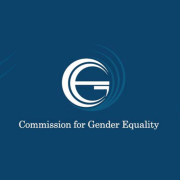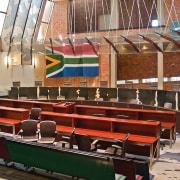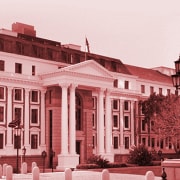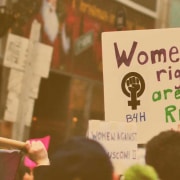|
Getting your Trinity Audio player ready...
|
By Moepeng Valencia Talane – CW Voices
The events of this week once again raised the question of standards in the process of appointing leaders in our society. We saw one of the country’s most celebrated industry leaders being the subject of media reports and public commentary questioning her credentials. Economist Thabi Leoka is accused of having lied about having a PhD qualification from the London School of Economics, a part of the University of London. Leoka’s denial of this is on record, as is her threat of legal action against the Business Day, which was the first to report on the matter.
All sorts of reactions emerged following the news, particularly on social media. From messages of support to her, to the deeper analysis of a recurring pattern of prominent professionals being discovered to be unqualified in their respective fields. The names of Chris Hart, another prominent economist; Daniel Mtimkulu, a former executive at Prasa; and on the political front, ANC stalwart and former cabinet minister Pallo Jordan, were bandied about to drive the point that the standards of vetting and absolute fact checking across sectors are not where they need to be. Leoka’s last prominent role was as director at financial services giant Remgro, a public company with obligations to shareholders. Whether it is her reported dispute with the company that led to the revelations by Business Day – which she has denied – remains to be seen.
What has not escaped public commentary is the number of leadership positions she has enjoyed in her career spanning over a decade, across the private and public sectors, as well as civil society. In fact, in another media report that followed the Business Day one, Daily Maverick lists the companies in which Leoka held directorships and advisory roles. Both publications report that the LSE has denied having any record of Leoka’s PhD on its system.
“Leoka has held numerous directorships as well as high-profile advisory positions to President Cyril Ramaphosa and former finance minister Nhlanhla Nene. Her use of the honorific ‘Dr’ appears in nearly every biography of her available online, and in media interviews, she is frequently introduced as ‘Dr’ Thabi Leoka,” writes Daily Maverick.
“She serves on the boards of several companies including Anglo American Platinum, the Small Business Institute and the Senegal-based consulting group Act-Afrique. She is also a board member of MTN SA, and in company documents, her official bio says she holds a PhD in economics from the University of London. Additionally, ‘Dr’ Leoka serves on the Statistics South Africa Council where she chairs the Economic Statistics Committee. She is also a former Corruption Watch board member.”
CW board member
It was on the basis of this track record at these institutions and in her field of expertise that Leoka was approached to occupy a board membership at Corruption Watch (CW). She was a board member from September 2017 until January 2022. In an enquiry from Daily Maverick regarding her time at CW, the organisation was asked if it had vetted her credentials before her appointment. The honest response was that it had not, at least not in the strict sense of demanding that she and other board members produce physical proof of their qualifications.
Board members’ value to the organisation and to its policies and public work is mainly determined by their public track records and their commitment to the anti-corruption landscape.
Doing better
In hindsight, CW should have known better, and done better. Not only because this scandal raises eyebrows over its processes, but because it holds other sectors to high standards for the same. Among CW’s most public work is the Leadership Appointments Campaign, which compels government leadership to instil a strict culture of demanding ethical leadership across its institutions, including the strict vetting of credentials.
So noble are the goals of the campaign, that it was endorsed by the chairperson of the state capture commission, Chief Justice Raymond Zondo, in his recommendations relating to institutional reform.
CW is by no means, judging by the revelations of this week, the only organisation that needs to up its vetting game. The private sector companies listed in the Daily Maverick article too have that responsibility, as does the Presidency, which called for Leoka to produce proof of her credentials, following the media reports. She is a member of Ramaphosa’s economic advisory council.
An across-the-board culture shift is needed to bolster the standards by which companies, government institutions and civil society organisations alike, appoint leaders. It is, after all, by the quality of those leaders, that the general public ranks the organisations in question.
A further response to the Daily Maverick’s question was that CW commits itself to improving its standards for the future, in the appointment of board members, as it does in the appointment of its operational staff. The organisation claims no excuses for its lapse of processes and continues to stand by its decision to appoint Leoka, who made a stellar contribution to its work.
Honest, transparent, ethical
On the part of Leoka, and other individuals who may find themselves compromised in discourse about ethics and honesty relating to their professional profiles, there is a need for serious reflection. When one has had access to platforms of decision-making that aim to shape both their fields of expertise as well as inspire ideas for public policy, then one owes it to the public to be honest, transparent, and ethical at all times. We should strive for a society where no-one’s credentials are in question, because everyone who truly wants to occupy a position of leadership must earn it, fair and square.
It was author Simon Sinek who said, “Leadership is not a license to do less. It is a license to do more.” The words ring true particularly in this climate of uncertainty in our country, where ethical leadership is desperately needed to advance the goals of eradicating poverty and diminishing inequality. Those who lead us must be of a higher standard of integrity.








